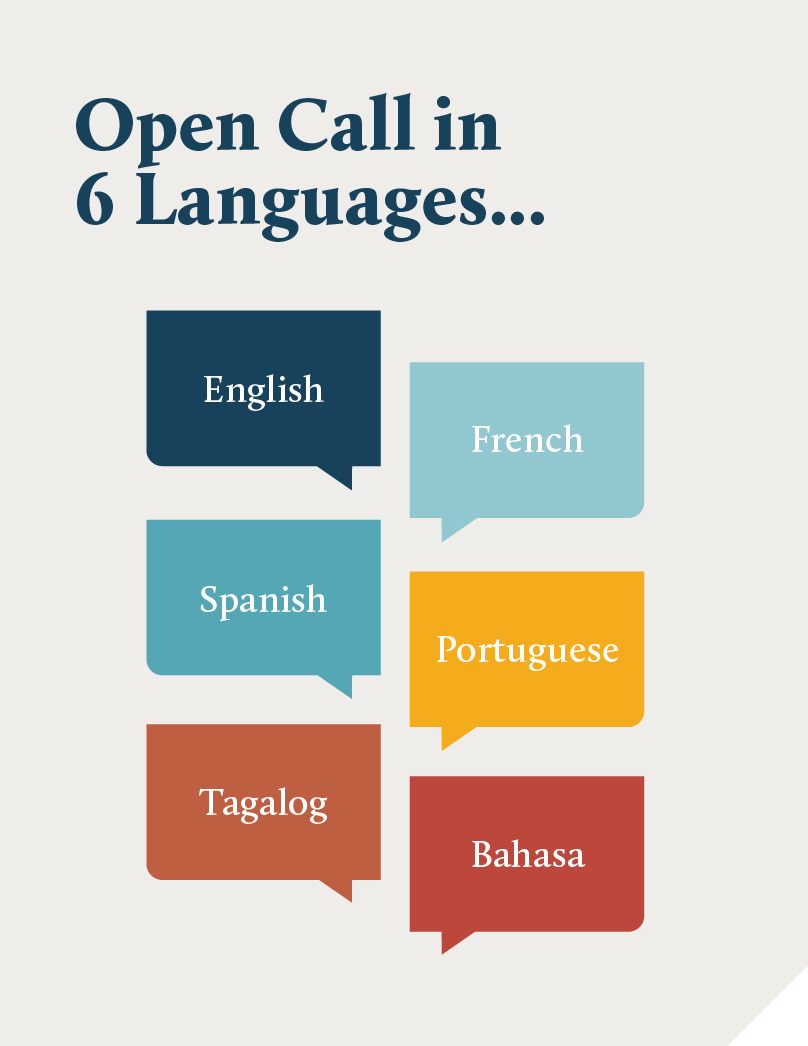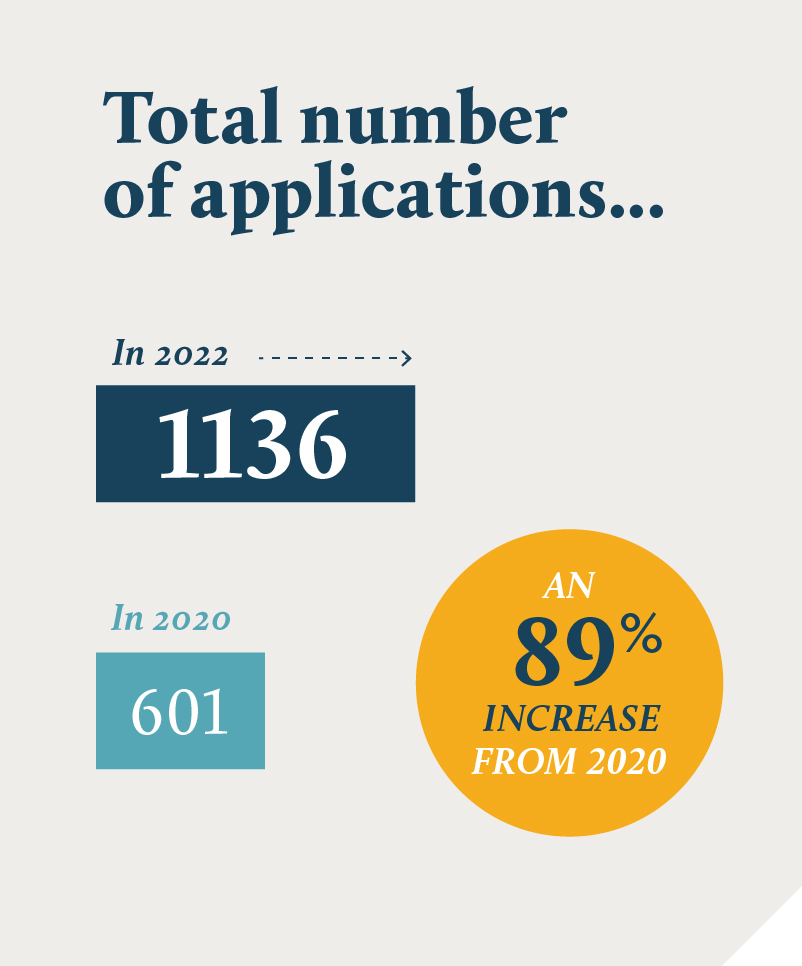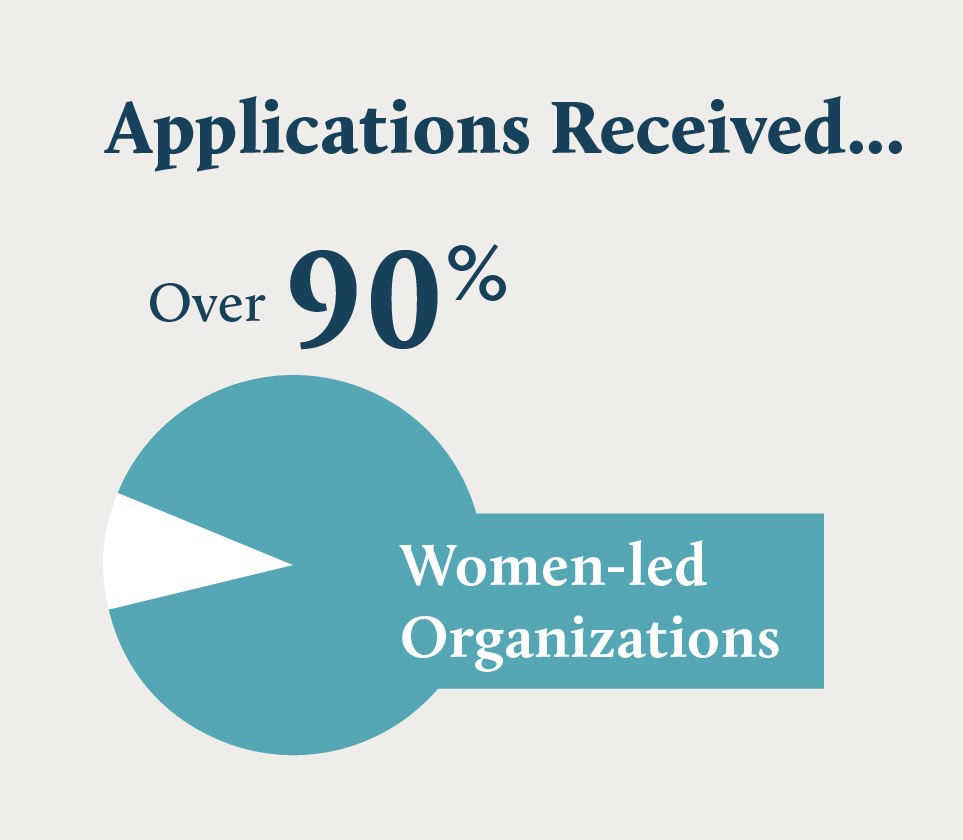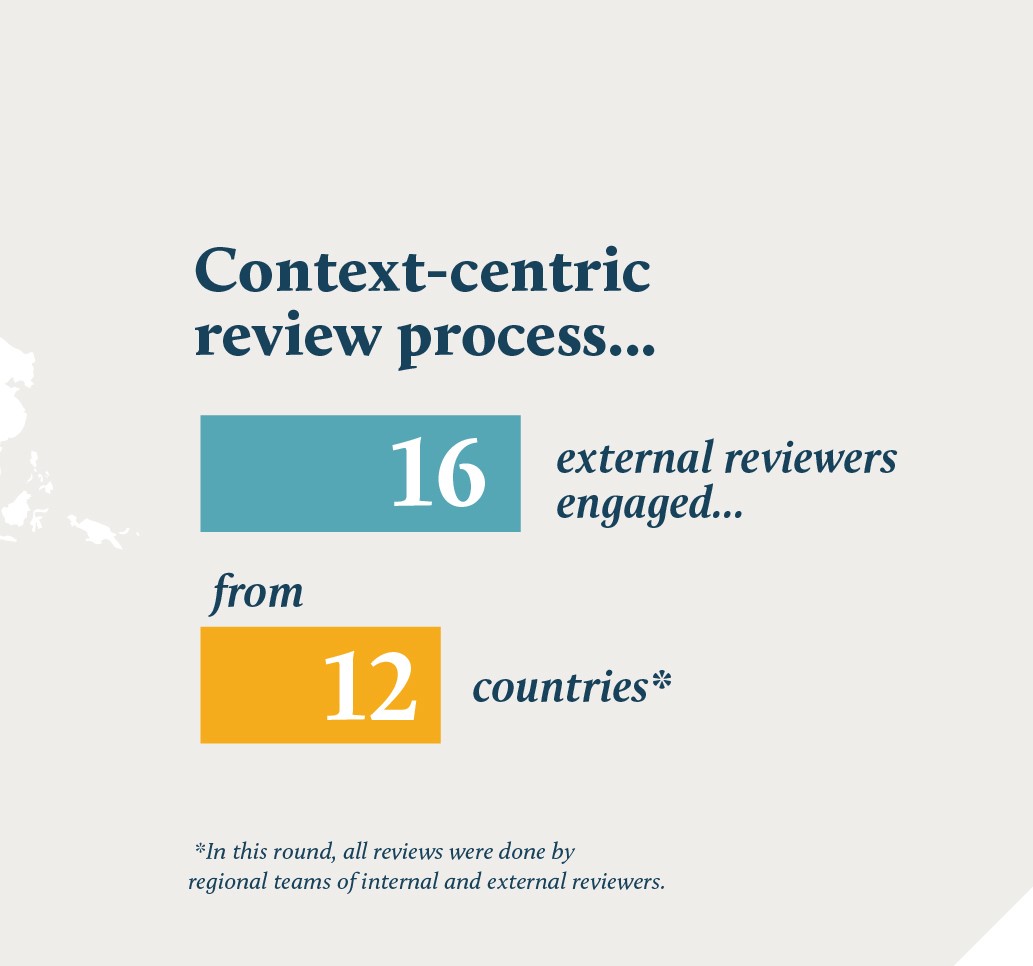News
Partnering for gender equality and women’s leadership – Our journey towards funding an ecosystem of locally-rooted organizations with representational leadership
By Yasmin Madan and Nguhi Mwaura
Earlier this year, Co-Impact launched the Gender Fund, a collaborative effort across funders, social change organizations, and gender champions to advance gender equality and women’s leadership. Given the deeply entrenched systemic barriers and restrictive norms that women and girls experience, we recognize that funding for gender equality requires disrupting and reimagining traditional funding mechanisms. It starts with who we partner with and how we support them. This blog reflects on our journey so far towards identifying partners for the Gender Fund Country-level grants.
In October 2021, Co-Impact launched an open call to Global South and predominantly women-led organizations to partner with us in our aspiration for a world where women and girls have equal opportunity to lead fulfilling lives, no matter where they are born. A few principles informed the design of the open call:
- Our aim is to transform systems to be more effective, just, and inclusive because the basic services that people need in order to lead fulfilling lives are organized in the government and market systems of health, education, and economic opportunity;
- Transforming systems means changing how power is distributed, who makes decisions, and whose voices are heard, and that means women’s leadership is integral to systems change;
- What we fund is important, but who we fund and how we support them really matters. Recognizing the truth in ‘nothing for us, without us’ requires us to prioritize locally-rooted organizations, especially those led by women.
 To live into our aspirations and principles, we consulted with feminist leaders and gender experts, including our Gender Fund Advisory Board. In these engagements, we were encouraged to both build on our previous experience and to expand our mental models. For instance, we examined the ways in which our requirements and selection criteria may exclude certain organizations and/or approaches to systems change, and we reframed the open call. We revisited our language requirements with a language justice lens and launched the open call in six different languages. This was accompanied with support to organizations to also apply in their language of choice and not need English translations from their side. Each of the deliberate design choices we made opened our minds to what is really needed. In turn, we saw the results in the response we got. From across 13 countries in three regions, we received almost double the number of applications from our previous open call round last year. There is a lot to celebrate and a lot to learn. Below, we share our reflections and insights that will continue to inform our work going forward.
To live into our aspirations and principles, we consulted with feminist leaders and gender experts, including our Gender Fund Advisory Board. In these engagements, we were encouraged to both build on our previous experience and to expand our mental models. For instance, we examined the ways in which our requirements and selection criteria may exclude certain organizations and/or approaches to systems change, and we reframed the open call. We revisited our language requirements with a language justice lens and launched the open call in six different languages. This was accompanied with support to organizations to also apply in their language of choice and not need English translations from their side. Each of the deliberate design choices we made opened our minds to what is really needed. In turn, we saw the results in the response we got. From across 13 countries in three regions, we received almost double the number of applications from our previous open call round last year. There is a lot to celebrate and a lot to learn. Below, we share our reflections and insights that will continue to inform our work going forward.
 First, recognize the power of signaling. In line with our commitment to locally-rooted organizations and representational leadership, we limited applicant eligibility to Global South organizations.1 We also explicitly stated that at least 75% of our country-level grants would be for organizations led by women.2 We signaled our intentions and it worked. We received over 1,130 applications and of these, over 1,000 met our Global South criteria. Similarly, over 90% of the applications we received were from women-led organizations. As funders we need to know that the potential is out there, and wisely use our signaling to find and fund. After multiple rounds of reviews, as we move towards the end of the process, we are confident that our emerging portfolio of country-level grants will reflect a significant number of women-led organizations, especially women-rights groups and feminist movements, in line with our global commitment.
First, recognize the power of signaling. In line with our commitment to locally-rooted organizations and representational leadership, we limited applicant eligibility to Global South organizations.1 We also explicitly stated that at least 75% of our country-level grants would be for organizations led by women.2 We signaled our intentions and it worked. We received over 1,130 applications and of these, over 1,000 met our Global South criteria. Similarly, over 90% of the applications we received were from women-led organizations. As funders we need to know that the potential is out there, and wisely use our signaling to find and fund. After multiple rounds of reviews, as we move towards the end of the process, we are confident that our emerging portfolio of country-level grants will reflect a significant number of women-led organizations, especially women-rights groups and feminist movements, in line with our global commitment.
 Second, fund an ecosystem for long-term impact. In our first fund, Co-Impact has made relatively substantial and long-term investments in organizations that have a proven model and the potential for large-scale impact through systems change. As part of the Gender Fund, we recognize that irreversible social change and shift in power happens in many different ways. Sometimes it is a technocratic solution around a new policy or better implementation of an existing policy. Or it can mean bringing aspects of better governance and improved accountability mechanisms to make systems function more inclusively and responsively. Other times, it takes advocacy efforts or movement-led activity to shift norms that have held the status quo in place. For us, this meant holding to our core of funding for enduring impact at scale, while being open to what it takes to make systemic and institutional change happen in different country contexts. From our consultations with feminist leaders and gender experts, we also heard the need to resource and support organizations that have been historically underfunded. To support this diversity of approaches and ecosystem of organizations, we created three grant types with different qualification requirements that made it easier for organizations to apply based on their capacity needs, the stage of initiative, and their readiness to scale. For instance, one of our grant types – Catalytic grants – are intended to support women-led organizations that need a longer runway to develop their systems change strategy, establish their partnerships and coalitions, and invest in their organizational strengthening needs. Over 67% of the applications we received were for Catalytic grants showing the need for this kind of support. Building an ecosystem for tomorrow is as important as investing in solid initiatives today. We recognize this and the Gender Fund has committed to having stronger, more resilient, Global South and women-led organizations as part of its ten-year objectives.
Second, fund an ecosystem for long-term impact. In our first fund, Co-Impact has made relatively substantial and long-term investments in organizations that have a proven model and the potential for large-scale impact through systems change. As part of the Gender Fund, we recognize that irreversible social change and shift in power happens in many different ways. Sometimes it is a technocratic solution around a new policy or better implementation of an existing policy. Or it can mean bringing aspects of better governance and improved accountability mechanisms to make systems function more inclusively and responsively. Other times, it takes advocacy efforts or movement-led activity to shift norms that have held the status quo in place. For us, this meant holding to our core of funding for enduring impact at scale, while being open to what it takes to make systemic and institutional change happen in different country contexts. From our consultations with feminist leaders and gender experts, we also heard the need to resource and support organizations that have been historically underfunded. To support this diversity of approaches and ecosystem of organizations, we created three grant types with different qualification requirements that made it easier for organizations to apply based on their capacity needs, the stage of initiative, and their readiness to scale. For instance, one of our grant types – Catalytic grants – are intended to support women-led organizations that need a longer runway to develop their systems change strategy, establish their partnerships and coalitions, and invest in their organizational strengthening needs. Over 67% of the applications we received were for Catalytic grants showing the need for this kind of support. Building an ecosystem for tomorrow is as important as investing in solid initiatives today. We recognize this and the Gender Fund has committed to having stronger, more resilient, Global South and women-led organizations as part of its ten-year objectives.
Third, prioritize the organization and the people. As our portfolio of program partners grows and as we continue to learn from them on what it takes to do systems change, we realize that the leadership and the team members, organization’s role in the ecosystem, and their commitment to the cause and the context are what inherently matter. The landscapes will evolve, crises like the COVID pandemic will emerge, and the political-economy contexts will remain dynamic, but what will help keep the arc of change in the right direction are the organization’s purpose and people. We re-worked our scoring criteria to reflect this consideration of purpose and people right upfront. In addition to the initiative’s strategy, we also included aspects in our scoring like problem analysis, intersectional gender approach, and commitment to women’s leadership at all levels – within the program and within the organization.
Fourth, balance transparency and probability.
There are several advantages to an open call approach to sourcing. It creates a level playing field, is transparent, and efficiently reaches large numbers of organizations, including many that we may not have known about. As noted, we got over 1,130 applications from 13 countries across three regions. On the other hand, an open call is a process designed to result in more ‘no’ than ‘yes’. If we can only fund 20-25 initiatives in a year, we realize it might be better to also balance it with a more focused sourcing approach. Even with our efforts to simplify our application process and minimize our requirements, we recognize that it involves a commitment of time, effort, and resources from organizations that should be focused on the work they do. So how do we balance the probability of a yes with the fairness and transparency of an open call? We are now revising our sourcing to be more focused in ways that will allow for deeper conversations with organizations. Our approaches going forward may include open calls for the signaling and the broader reach they bring, especially needed in some geographies or issue areas.

Finally, move decision making even closer to the context. In this round, all reviews were done by regional teams of internal and external reviewers. We engaged 16 external reviewers based in 12 different countries.
These reviewers included feminist leaders and gender experts who have deep knowledge of the landscape, an intimate understanding of the issues and the organizations, and can provide a richer perspective on existing partnerships and coalitions. The inputs from all reviewers helped us get to regional portfolios that are unique to the regional contexts and in line with the needs and opportunities that emerged in those countries. Building on this, we will move to even more proximate sourcing approaches. Going forward, our entire sourcing for country-level grants – from design to final selection – will be done in regional teams. These regional teams will be guided by local advisors and experts, will engage openly and transparently, and will determine how best to advance the Gender Fund objectives in their respective countries. The closer we can move our funding and our decision making, the better we can support locally-rooted organizations in advancing gender equality and women’s leadership in their country contexts.
[1] Applicants must meet 2 of 3 criteria: i) Global Head Office and majority of the total staff presence is in a Global South country; ii) Leader of the initiative/organization and at least 50% of senior leadership are from the Global South; iii) Lead organization/initiative has long-term roots in the region.
[2] Substantively led by women means: i) The primary leader and a significant portion of the senior leadership of the anchor organization or initiative are women; and ii) Gender composition of the lead organization’s governance structure has significant and/or increasing representation of women.